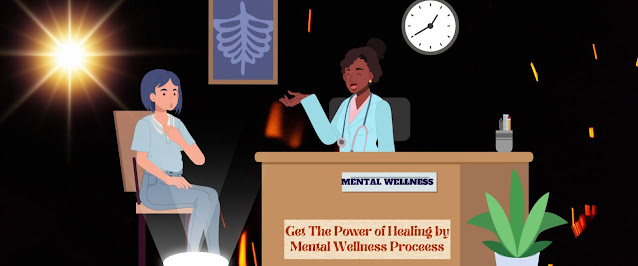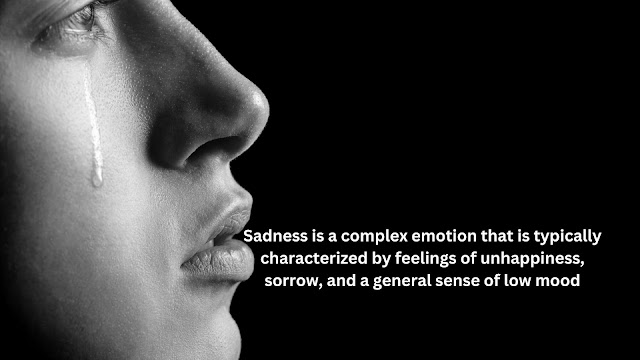What is a healing power? How do you get the power of healing? What is natural healing power? What is power of the mind to heal? Can humen have healing powers? What is the best self healing? What are self-healing techniques? How do I start healing myself?
For ages people have been concerned with various types of questions mentioned above about healing power or healing energy.
Every human being has happiness and
sadness or pain in his/her life. Sometimes people suffer from mental pain, sometimes from physical pain, for ages people have been searching for healing powers that can easily relieve them from mental and physical pain.
Where is the source of healing power:
Now the question is from where we can find this healing power. Healing power is hidden within you. There is not any external source of it. The real healer of our body and mind is our subconscious mind.
In this case, a
believe system can help you a lot, that is "you have already the resources you need or you can create them"
The question must be come in your mind 'If healing powers are hidden within us, why do we go to a doctor-physician, God or saint for healing when we feel pain in body or mind!' In fact, only one thing that works here is the believe-system, the mankind believes in unknown forces more than his own strength. Moreover, how many people know about the power of the subconscious mind and how to use properly that power! I will come in detail in all these contexts but before that we need to know what is the healing power!
What is healing power?
Healing power generally refers to the ability to promote physical, mental, or emotional healing.
In medical contexts, healing power may refer to the ability of certain treatments or therapies to help alleviate or cure physical illnesses or injuries. For example, antibiotics have the healing power to kill harmful bacteria and promote recovery from infections, while chemotherapy has the healing power to destroy cancer cells and shrink tumors.
In alternative therapies, healing power may be attributed to the ability of natural remedies, such as herbal medicine, acupuncture, or massage, to stimulate the body's own healing mechanisms and promote balance and wellness.
In spiritual contexts, healing power may refer to the ability of prayer, meditation, or other spiritual practices to promote emotional or mental well-being and alleviate
stress, anxiety, or
depression.
Ultimately, the concept of healing power is subjective and can vary depending on individual beliefs and experiences.
What is power of the mind to heal?
The power of the mind to heal refers to the ability of the mind to positively influence physical, emotional, and mental health outcomes. The mind and body are intimately connected, they form a system through which we are driven, and research has shown that our
thoughts, beliefs, and emotions can have a profound impact on our overall well-being.
One example of the power of the mind to heal is the placebo effect, in which a person experiences a therapeutic benefit from a treatment that has no active ingredients. This is thought to occur because the person's belief in the treatment triggers the body's natural healing mechanisms, such as the release of endorphins or other beneficial chemicals.
There is also evidence that practices such as Mental Wellness, mindfulness meditation,
visualization, and
positive affirmations can have a positive impact on health outcomes. These practices are thought to work by reducing stress and
anxiety, which can contribute to a range of health problems, including cardiovascular disease, depression, and chronic pain.
While the power of the mind to heal is not a panacea for all health problems, it is increasingly recognized as an important factor in achieving and maintaining good health. By cultivating positive thoughts and
emotions, and engaging in practices that promote relaxation and well-being, we can support our body's natural healing mechanisms and improve our overall health and well-being.
Can humen have healing powers?
While humans don't necessarily have "healing powers" in the supernatural sense, we do have the ability to influence our own healing through various practices and techniques. These techniques often involve using the
mind to positively influence physical, emotional, and mental health outcomes.
For example, Mental Wellness have been shown to have a positive impact on health outcomes, including reducing stress and anxiety and promoting relaxation. Additionally, practices such as yoga and tai chi can help improve flexibility, strength, and
balance while also promoting relaxation and well-being.
What is the best self healing?
In terms of the best self-healing practices, there is no one-size-fits-all approach, as different techniques may be more effective for different individuals and health conditions. It's important to find what works best for you through trial and error and consulting with healthcare professionals as needed.
Some self-healing practices that may be beneficial for many individuals include:
Mindfulness meditation: This involves focusing on the present moment and cultivating a non-judgmental awareness of one's thoughts, feelings, and sensations.
Yoga: This ancient practice involves physical postures, breathing exercises, and meditation, and has been shown to have numerous physical and mental health benefits.
Exercise: Regular exercise can help reduce stress and anxiety, improve cardiovascular health, and promote overall well-being.
Nutrition: A healthy, balanced diet can help support the body's natural healing mechanisms and promote optimal health.
Sleep: Getting enough restful sleep is essential for physical and mental health, and can help support the body's natural healing processes.
Get The Power of Healing by Mental Wellness Proceess:
Mental wellness can play a significant role in developing healing power. When you are mentally well, you tend to have a more positive outlook on life, which can help reduce stress and anxiety. This can help improve your immune system, which is essential for healing.
Additionally, when you are mentally well, you tend to take care of yourself better, such as eating a healthy diet, exercising regularly, and getting enough sleep. These healthy
habits can also help your body heal more quickly and effectively.
Mental wellness can also help you develop a strong sense of inner peace and calm, which can be useful for coping with pain, illness, and other
challenges. When you are calm and centered, you may find it easier to manage physical discomfort and emotional distress.
Finally, mental wellness can help you cultivate a positive attitude and approach to life, which can help you
stay motivated and
resilient during difficult times. This can be especially important when dealing with chronic or long-term health issues.
Overall, mental wellness and healing power are closely connected, and investing in your mental health can have significant benefits for your physical health and well-being.
Ultimately, the best self-healing practices will vary depending on individual needs and preferences. It's important to find practices that feel good and supportive for your body, mind, and spirit, and to make them a regular part of your
self-care routine























